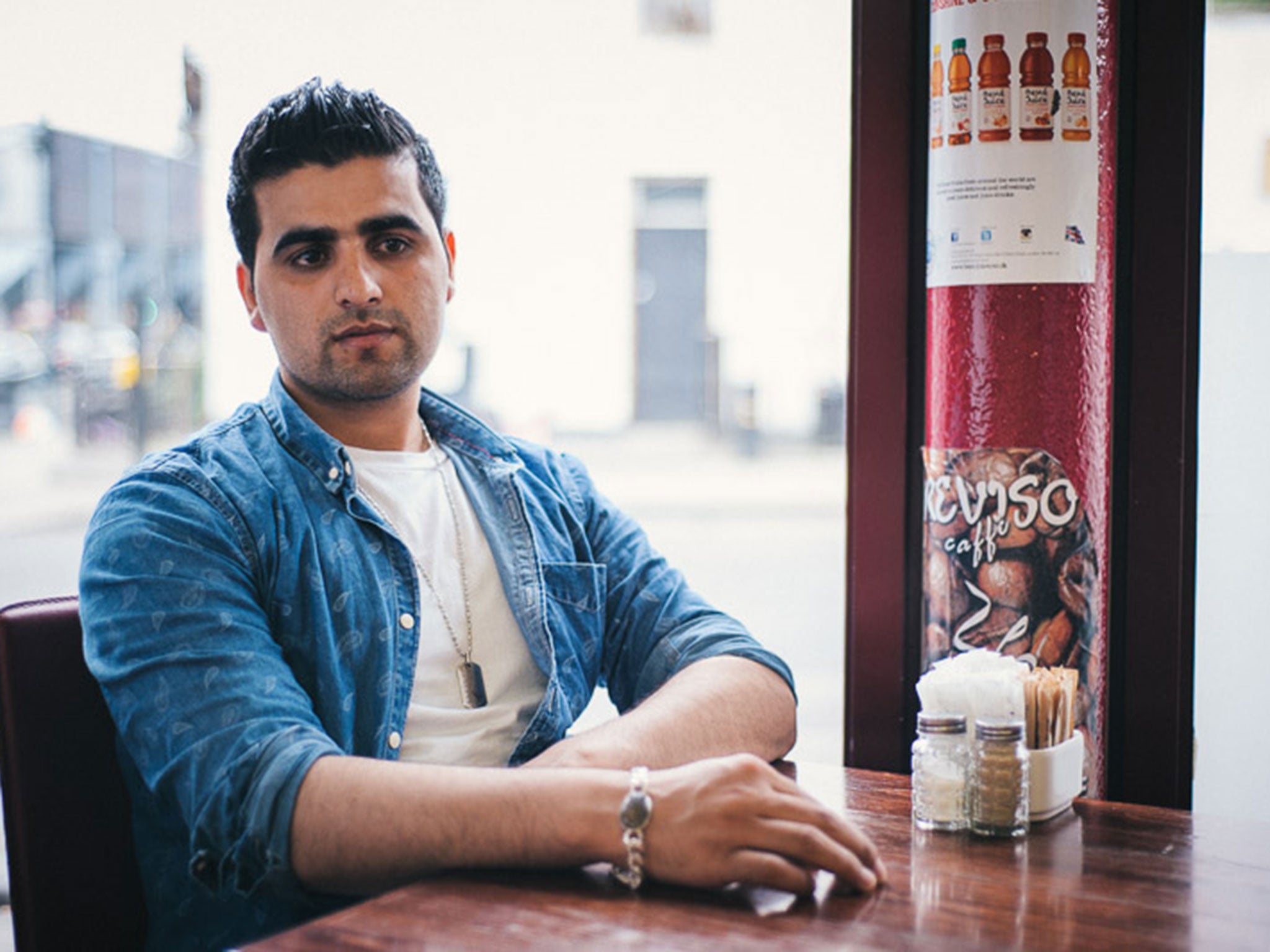Hundreds of Afghans who grew up in UK face deportation to country they 'barely remember'
Exclusive: An average of 100 people a year are being sent back to Afghanistan

Hundreds of Afghan children who grew up in Britain are facing mass deportation back to a country that they barely now remember, an investigation for The Independent has established.
An average of 100 Afghans a year are now being sent back to their country of their birth despite many having not lived there for years, the Bureau of Investigative Journalism found. Hundreds of others remain in Britain awaiting a similar fate.
Those deported have mostly spent their formative years in Britain living with foster parents, taking GCSEs and A-levels, and having little or no contact with the country of their birth.
But, under Britain’s immigration policies, their “leave to remain” is automatically cancelled when they are 18 and they are in line for deportation. In many cases, those sent back no longer know where their families live, having gone years without contact.
Their Westernised mannerisms and accents also mean they are often regarded with suspicion in Afghanistan, and some told the Bureau they have been left homeless, chased by the Taliban, kidnapped, ransomed and beaten.
The situation has come about because the UK government, bound by international law, is unable to send unaccompanied asylum-seeking children back their country of origin. Instead it issues temporary leave to remain, which lasts until six months after their 17th birthday.
The temporary leave has been criticised by human rights organisations. They say the Home Office and lawyers are using the practice as a quick fix when children arrive instead of properly exploring their asylum claims.
It means that when the newly turned adult does apply for asylum many years later, the facts are harder to recall, inconsistencies can appear as lies and formal claims to remain are more likely to be rejected. The Bureau found just one in five Afghans secure asylum at this point, while in some cases people are left waiting for more than four years for a decision.
Afghan children are more than twice as likely to be refused permanent asylum than children of other countries of origin. Since 2006, 15 per cent of all unaccompanied asylum-seeking children were given refugee status, compared with just 6 per cent of Afghan children.
Both the UNHCR and senior officials in the Children’s Commissioner’s office have now told the Bureau that Britain’s policy towards asylum-seeking children needs to change. One senior official at the Children’s Commissioner’s office privately believes the system is “unfair”.
Sarah-Jane Savage, senior protection associate at UNHCR UK, said: “Children need a long-term, durable solution found for them, and certainly the idea that they would get something temporary until they were 18 does not fulfil that criteria.”
Liza Schuster, an academic based in Kabul who has interviewed about 100 returned “failed asylum seekers”, said they are often seen as a source of suspicion and money.
She said: “When you come back from Europe... you’ve learnt different habits and behaviours. Those coming back after life in Europe are extremely traumatised and frightened by what they are faced with; they don’t know where to go... or who to trust.”
The Bureau also found that authorities are unable to identify and reconnect returned teenagers with their families. Over the past two years, 228 Afghans have asked the Red Cross to help trace their family members, but only eight have been successful.
The Home Office has made clear that it has no intention of changing existing policies. “The UK has a proud history of granting asylum to those who genuinely need it, and every case is carefully considered on its individual merits” said a spokesman. “We take our international responsibility in cases involving children seriously and their welfare is at the heart of every decision."
Case Study: 'It was like a prison'
Abdul, who fled Afghanistan aged 15, is now 23 and awaiting deportation from his home in north London.
He applied for asylum when first arrived in Britain, telling the Home Office his mother paid for him to be smuggled out of his country after relatives tried to recruit him to the Taliban. But the Home Office rejected his claim and instead gave him temporary leave until he was 18. He went to school, took GCSEs, made friends, got a girlfriend and established a life for himself but now faced being returned to the country.
“Nobody explained [temporary leave] to me, I was like ‘OK I’m going to live here forever’, things were normal for a long time, then I turned 18 and everything changed.
“They told me I would be deported. They locked me up. It was like a prison. Every time they said I was going back, I started to think about what it would be like when the plane landed. I thought people will be looking for me.
“It would be so dangerous to return, people are still looking for me. Now when I speak my language I use a lot of English, because I’ve forgotten words, so I would be found easily.”
Unable to work or go to university, he is trapped in a legal limbo. “I have made friends and a future for myself here, but all that taken could be away from me.”
Join our commenting forum
Join thought-provoking conversations, follow other Independent readers and see their replies
Comments